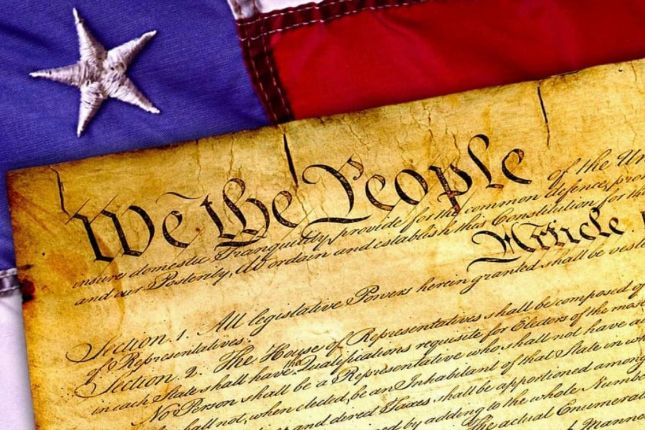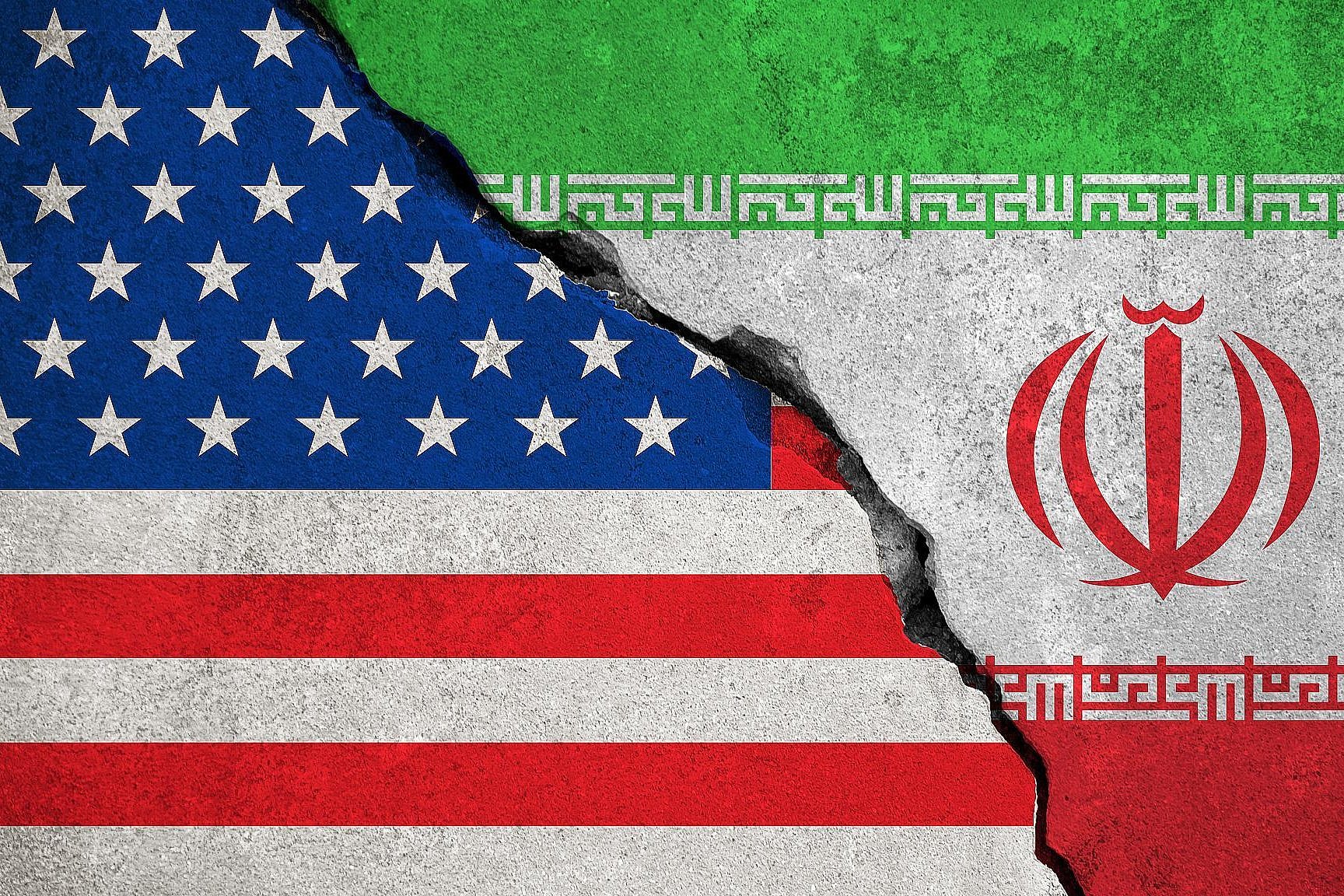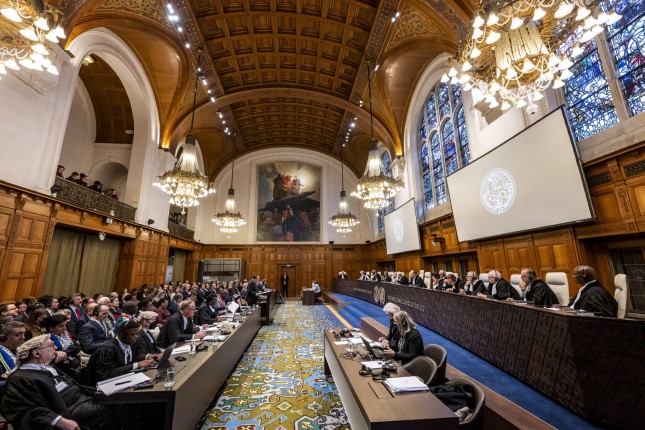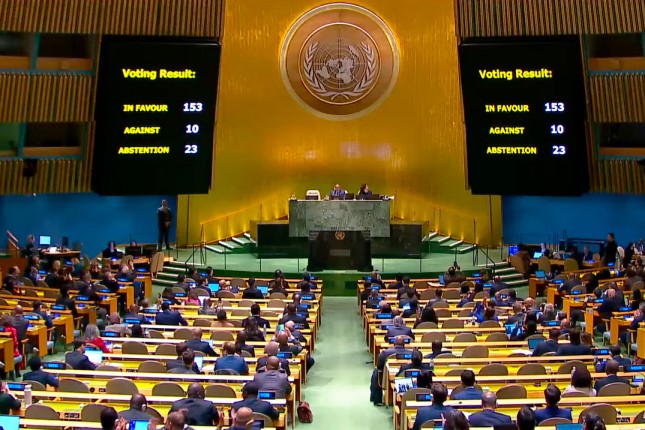he Founding Fathers put their lives, property, wealth, and honor on the line to establish a great nation based on freedom, liberty, and self-governance. They faced impossible odds: the might of the British Empire, divisions among the colonies, and the entrenched moral and political questions raised by slavery — a practice that was already embedded in the economies of Europe, Africa, and the Americas.
Centuries later, many identify echoes of their struggles in Donald Trump’s battle against what he calls the “Deep State” and established global elites. Though not everyone admires his swaggering and often brazen public persona, his sacrifices — enduring unceasing attacks on his liberty, his family, and his wealth — reflect the Founders’ willingness to risk everything for what they believed. Like the framers of the Constitution, Trump has emerged as a lightning rod for the ideals of sovereignty, liberty, and national independence.
The Founders’ Sacrifices
The signers of the Declaration of Independence and the framers of the Constitution faced enormous dangers. If their revolution failed, they would be put to death for treason. Their families could face imprisonment, their homes confiscated, and their wealth annihilated. But they pressed on, motivated by a deep sense of responsibility to future generations.
These men were greatly influenced by classical philosophy and the plight for sovereignty in ancient Greece, Rome, and England. They read Aristotle, Plato, Cicero, and Locke and used these thinkers to forge a government based on natural rights and individual liberty.
Plato in his Republic imagined a just society where rulers cared more about virtue and the common good than their personal ambition. The Founders strongly resonated with his belief that government ought to reflect moral and philosophical principles. Likewise, Aristotle’s idea of eudaimonia, or human flourishing, emphasized that a just government had to allow citizens to pursue virtue and happiness. Aristotle stated, “The good of man must be the end of the science of politics.”
Cicero, known as the Father of Natural Law, played a pivotal role in shaping the Founders’ approach to justice and government. His conviction that laws should conform to universal truths is reflected in this remark: “True law is right reason in agreement with nature; it is of universal application, unchanging and eternal.” The framers embraced that idea and created an American Constitution recognizing that government does not give us our rights, but rather that we have inalienable rights that come from nature and God.
The Magna Carta, signed by King John of England in 1215, established limited government and the rule of law. Its insistence that even kings must follow the law inspired the Founders to design a government that would be accountable to its citizens. The charter restricted the power of the monarch and established the idea that no one, not even the king, is above the law. It also paved the way for wider legal rights for freemen in England.
John Locke’s “Two Treatises of Government” elaborates on these notions. Locke asserts that government exists strictly to preserve life, liberty, and property, and when it ceases to do so, citizens have the authority to change or eliminate it. Locke’s thinking was enshrined in the Declaration of Independence, where Jefferson declared that “all men are created equal” and endowed by their Creator with rights.
Faith among the Founders was another catalyzing force in their fight against tyranny. Prayer and meditation were part of their decision-making, and they considered governance a moral undertaking. Many of their principles were taken from the Bible, in particular Micah 6:8, which says: “He has told you, O man, what is good; and what does the Lord require of you but to do justice, and to love kindness, and to walk humbly with your God?” This verse emphasizes the Founders’ conviction that justice and humility were the sinews of governance.
“The Constitution is the compass which I will never forsake.”
—George Washington
Like the Founders, Trump has faced relentless attacks on his character, family, and legacy. His upbringing in Queens, New York and later his work in Manhattan real estate gave him an uncommon understanding of both middle-class struggles and the inner workings of elite power structures. His father, Fred Trump, instilled in him a tireless work ethic and a belief in the American dream, emphasizing the value of persistence and entrepreneurial spirit. This foundation, combined with his experience navigating the competitive and often ruthless world of New York City development, shaped Trump into a figure capable of representing the everyday American while challenging entrenched elites.
Impeachment trials, constant legal battles, and accusations of sedition have mirrored the challenges faced by figures like Jefferson and Adams. Both the Founders and Trump have shared an unwavering belief in the principles of national sovereignty and individual freedom.
The Constitution: A Defense Against Tyranny
The nation’s first governing document, the Articles of Confederation, had left the fledgling country weak and fragmented. But without the ability to tax, to field a military, or to regulate commerce, the federal government lacked the tools to respond to crises. A violent insurrection in the Massachusetts countryside during 1786 and 1787, known as Shay’s Rebellion, was brought about by a monetary debt crisis at the end of the American Revolutionary War. While Massachusetts was at the center of the crisis, other states faced similar economic devastation.
In the context of all of the strife and rage of their era, guided by their own profound study of the wisest thinkers and their selfless oratory directed toward substantive political change, the Founders understood that a more cohesive structure was necessary, which is why they met in Philadelphia in 1787 to craft the Constitution.
They designed a constitution that was a miracle of checks and balances. It separated powers among the Legislative, Executive, and Judicial Branches so that no single branch could control the government. Federalism further diffused power and authority across the national government and the states, allowing a dynamic yet flexible system.
The Constitution was designed to be more than a legal document; it was a safeguard against tyranny. By empowering the people while limiting centralized authority, the Founders made painstaking efforts to ensure liberty and preserve it across generations. This principle of checks and balances has been tested throughout history, from the Civil War to the modern-day battles over individual freedoms and state rights.
Donald Trump’s presidency highlighted the need to reinforce these safeguards. His policies aimed to restore the balance of power between the federal government and the people, echoing the framers’ belief in limited government. His America First agenda — focused on reducing foreign entanglements, strengthening domestic industries, and prioritizing national sovereignty — directly challenged the globalist ideologies that often undermine constitutional principles.
The Threat of Global Tyranny
The Founders were deeply aware of the dangers posed by concentrated power, both domestic and global. George Washington received letters of warning from the Illuminati, a secretive group accused of infiltrating Masonic lodges and attempting to influence political systems in Europe. Although Washington dismissed fears of their direct influence in America, he remained vigilant about external threats to liberty.
Today, the founders’ warnings resonate as never before. Globalism, championed by organizations like the United Nations, the World Health Organization (WHO), and the World Economic Forum (WEF), represents a concentrated effort to consolidate power among the world’s wealthiest elites. Under the guise of addressing global challenges such as climate change, pandemics, and economic inequality, these entities push for policies that strip nations of their sovereignty, functionally subordinating them to a global governance structure.
The WEF’s concept of the “Great Reset” is one example, envisioning a future where private property is abolished and personal freedoms are curtailed in the name of collective progress. The WHO’s push for legally binding international health regulations similarly threatens to erode national autonomy, allowing unelected bureaucrats to dictate pandemic responses. These initiatives are framed as solutions to global problems but, in reality, centralize power in the hands of an unaccountable few.
Trump’s administration stood firmly against these encroachments, rejecting agreements and policies that ceded American sovereignty to global institutions. His resistance to globalization reflects the Founders’ warnings against allowing foreign entities or centralized elites to dictate the destiny of the American people.
A Call to Unity and Vigilance
The Constitution remains a testament to the Founding Fathers’ courage, wisdom, and sacrifice. It was designed to address their time’s challenges and safeguard future generations’ liberty.
Today, the principles they fought for are under threat. The concentration of wealth and power, the erosion of individual rights, and the rise of globalism demand vigilance and action. For all its controversies, Trump’s presidency served as a reminder of the enduring struggle to preserve the ideals of the Constitution.
As Americans, we must honor the legacy of the Founders by defending the principles of faith, freedom, and self-governance. Just as the Founders risked everything to secure liberty, we must remain steadfast in the face of modern challenges. The fight against tyranny is eternal, but so is the spirit of liberty.
Source: American Thinker.













